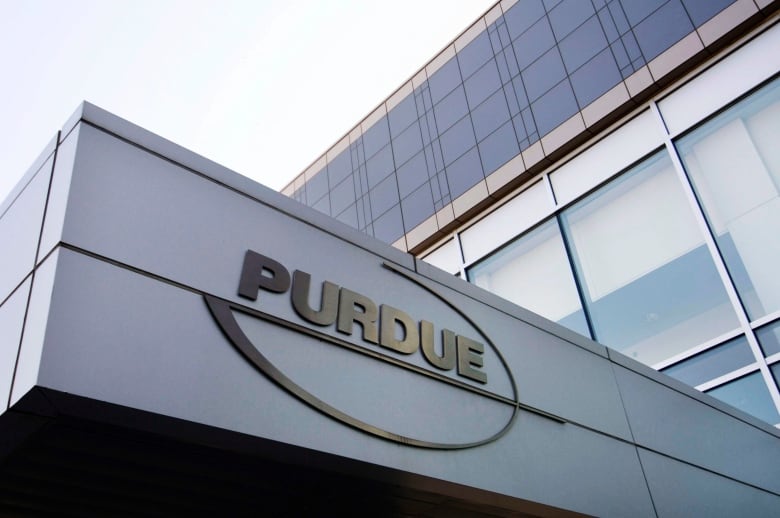
The federal government says it hasn’t closed the door on pursuing criminal charges against pharmaceutical companies over their alleged involvement in the opioid crisis — but such charges would result only in minimal fines.
While the province of B.C. is pursuing ongoing civil litigation against companies for allegedly downplaying the risks of opioid drugs — especially their addictive potential — when advertising them to doctors, the lawsuit is meant to recover health-care costs related to the ongoing crisis. It won’t involve any criminal penalties.
Under the federal Food and Drugs Act, it is illegal to sell or advertise a drug in a false or misleading way. Doing so is punishable by a fine of up to $5 million.
But that hefty fine only came into force in 2014. During the late 1990s and early 2000s, when drug manufacturers allegedly downplayed the risks of opioids, the fine was only $5,000.
Opioids previously had been used only to treat acute pain, such as broken bones. Dr. Joel Lexchin, a retired emergency care doctor and health policy expert, said manufacturers also attempted to expand the market for their opioid products by telling doctors they could be used to treat chronic pain.
“They were targeting people who injured their back at work, who injured their back by bending over and picking something up off the floor,” he said. “Anything that could lead to pain was deemed to be a target.”
Lexchin called the $5,000 fine “trivial.”
“That’s like getting a parking ticket when you’re going for an interview for a job that’ll pay you a couple of hundred thousand dollars a year,” he said.

According to a ministerial briefing binder available through the government’s proactive disclosure website, those low penalties could be deterring Ottawa from pursuing criminal charges.
“The Government of Canada could spend millions of dollars and years building a case for criminal charges, with the prospect of only a small fine as a penalty,” the document reads.
A spokesperson for Mental Health and Addictions Minister Carolyn Bennett wouldn’t explicitly say if the low fines are stopping the government from pursuing charges.
“We are continuing to explore all appropriate options to hold industry accountable for its role in the opioid crisis,” the spokesperson said in an email. The spokesperson pointed to the federal government’s support for B.C.’s civil suit as an example of the government taking action.
B.C. launched its lawsuit against more than 40 pharmaceutical companies in 2018. Last June, the government reached a $150 million settlement with one of the defendants — Purdue Pharma Canada — on behalf of all provinces and territories.
In 2020, Purdue Pharma pleaded guilty to criminal charges in the U.S. over its handling of its addictive prescription opioid OxyContin. And in 2021, consulting firm McKinsey & Company agreed to pay almost $600 million to 47 U.S. states to settle criminal investigations of its role in increasing opioid sales.

Despite the possibility that companies would face much lower fines in Canada, Lexchin said the government should still pursue a criminal case to send a signal.
“Sending a message that deceptive promotion is not acceptable also sends the message … ‘Don’t try it again,'” he said.
Glenford Jameson, a lawyer who specializes in regulatory compliance, said bringing charges under the Food and Drugs Act can be a lengthy and bureaucratic process with multiple steps.
“The system is not incredibly well designed to immediately head to charges,” he said.
That doesn’t mean charges are completely out of the question. But Jameson said that, given the low fines available, pursuing charges would likely result in a “show trial.”
“From a regulatory administrative perspective, is there value in throwing the book at somebody?” he said.
Since 2016, more than 32,000 Canadians have died of apparent toxic overdoses.
Petra Schulz’s son was one of them. She is co-founder of the organization Moms Stop the Harm, which advocates for harm reduction policies to address the crisis.
Schulz said that while she said she believes opioid manufacturers should be held accountable, she’d rather see the government put more effort into harm reduction policies such as safe supply.

“Charging pharma, going after pharma, starting new lawsuits is really a total distraction from what they should be doing,” she said.
Even if the companies could be pinned with the newer $5 million fine, Schulz said, she’d still rather see a focus on addressing the toxic street supply currently causing havoc across the country.
“Yes, holding pharma accountable is what we should do, but it will not save lives today because it doesn’t address the problem we have,” she said.